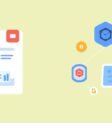
AI agents have ushered in a new era for search engine optimization (SEO), bringing automation, data-driven insights, and dynamic adaptation to digital marketing strategies. In this article, we’ll explore how AI agents for SEO are revolutionizing keyword research, tracking, and performance—demonstrating the advantages, best platforms, and future prospects for leveraging artificial intelligence in your optimization efforts.
How AI Agents Are Transforming SEO Workflows
AI agents are specialized programs built to autonomously tackle tasks by learning from and adapting to large streams of data. In the realm of SEO, AI agents streamline time-consuming functions like keyword research, competitive analysis, site audits, and content optimization. By leveraging machine learning, natural language processing, and predictive analytics, these agents deliver real-time, data-driven insights that help marketers spot new ranking opportunities, pinpoint technical issues, and refine strategic direction.
Unlike traditional approaches—often bogged down by manual labor—AI agents enable SEO teams to focus on strategic decisions instead of repetitive execution. The result? Enhanced search visibility, better-targeted web traffic, and strategies that can flex quickly in response to changes in search engine algorithms. For a comprehensive overview of how AI agents are being adopted in marketing, check out this guide on using AI agents in marketing.
The Evolution of Keyword Research: Manual to AI-Driven
Historically, keyword research in SEO relied on manual brainstorming, competitor site reviews, and basic tools like spreadsheets or Google Keyword Planner. As user intent and search patterns became more sophisticated, this manual approach quickly became inadequate: it was slow, subject to human error, and often failed to capture new trends or nuanced query variations.
The shift to AI-driven keyword research has been transformational. AI agents can now process massive real-time datasets, scan millions of user queries, and extract patterns or opportunities beyond human reach. These tools interpret contextual relevance, search intent, and semantic keyword relationships—delivering insights that are tightly aligned with how today’s users interact with search engines.
AI systems ingest information from diverse channels (including local trends, voice search, and social signals), offering a holistic understanding of keyword potential. Continuous machine learning ensures these systems instantly adapt to changes in search algorithms or market behavior, keeping your content strategies forward-looking.
Key Capabilities of AI Agents in Keyword Research
Today’s leading AI agents for SEO bring an array of advanced features that supercharge keyword research and strategy:
- Data Mining: Pulling relevant keywords from search engines, competitor sites, and social platforms, these tools zero in on trending queries and user questions.
- Keyword Clustering: Natural language processing (NLP) is employed to group semantically similar keywords, allowing content to be organized around themes or clusters rather than just single terms.
- Competitor Analysis: AI agents map the keywords your competitors are ranking for, revealing both content gaps and new opportunities to target.
- Search Intent Analysis: By categorizing keywords according to informational, navigational, or transactional intent, these AI-driven tools help maximize content relevancy.
- Real-Time Trend Monitoring: Automated monitoring surfaces emerging or seasonal keywords as soon as they gain traction, helping teams adapt content on the fly.
Popular AI-powered SEO platforms such as SEMrush’s Keyword Magic Tool, Surfer SEO, and others have adopted these features at scale, enabling marketers to automate campaign planning and elevate their keyword strategies above the competition.
Automated Keyword Tracking and Performance Monitoring
AI agents for SEO are not just improving research—they’re enhancing the way teams monitor performance and adapt strategies. Automated tracking platforms now provide real-time updates on keyword rankings across multiple search engines, sending alerts when significant changes occur. This allows SEO professionals to respond rapidly to fluctuations in rankings or algorithm updates and take advantage of new opportunities.
Thanks to automated SERP monitoring, businesses can spot emerging competitors, new search features (like rich snippets), or sudden drops in keyword positions without manual intervention. AI agents dig even deeper, tracking competitive keyword overlaps, identifying content or backlink gaps, and presenting it all in consolidated dashboards. Centralizing campaign performance enables marketers to react quickly and make data-driven adjustments that foster higher organic search growth.
AI Agents for SEO: Benefits and Challenges
Integrating AI agents in SEO comes with clear benefits:
- Efficiency: Automation saves time and resources by handling vast datasets, technical audits, keyword analysis, and content updates at scale.
- Increased Accuracy: Automated recommendations reduce errors, ensuring precision and alignment with evolving search engine algorithms.
- Scalability: AI agents can handle growing content portfolios and complex data without performance bottlenecks.
However, relying exclusively on AI presents a few challenges:
- Lack of Creative Context: AI can miss brand nuance or audience sentiment, so human oversight remains necessary for maintaining brand voice and intent.
- Data Dependency: AI needs high-quality, significant volumes of data for best results, which may disadvantage new or smaller websites.
- Technical Complexity: Implementation requires technical expertise to fully integrate and maintain AI recommendations in a fast-changing landscape.
- Continuous Learning Curve: SEO teams must stay current with both AI and search engine developments to avoid falling behind.
Managing the balance between AI-powered automation and human strategy is key to maximizing the impact of AI agents in SEO. For insights on practical applications of marketing bots, see the best use cases for TheAgentBot in 2025.
The Top AI Agents for SEO Keyword Research & Tracking
Choosing the right AI agent for SEO involves weighing core features, scalability, ease of integration, and your team’s specific needs. Some leading platforms include:
- SEMrush AI-Powered Keyword Magic Tool: This tool stands out for its extensive keyword database, AI-driven suggestions, and clustering capabilities. The Keyword Gap tool uncovers opportunities your competitors have missed.
- Ahrefs Keywords Explorer: Famed for its up-to-date keyword difficulty scores and SERP volatility analysis, Ahrefs helps pinpoint high-value keywords and tracks rankings with impressive accuracy.
- Surfer SEO’s Content and Keyword Planner: Surfer’s AI-powered module analyzes top SERPs, organizes keywords by topic, and offers actionable content optimization suggestions for building topical authority.
- Moz Pro Keyword Explorer: Integrating AI-backed prioritization and opportunity analysis, Moz Pro identifies “low-hanging fruit” and tracks ranking fluctuations across large keyword sets.
When selecting an AI agent:
- Define your primary SEO goals—be it deep competitor research, content optimization, or robust reporting.
- Match tool features (e.g., real-time monitoring, trend prediction, keyword clustering) to your pain points.
- Consider usability, integration with existing analytics suites, and the provider’s support services.
A prudent approach is to start with a trial or a demo, assess fit and reporting depth, and scale as organizational needs grow.
Preparing for the Future: AI-Driven SEO Strategies
The future of SEO will be closely intertwined with the advancement of artificial intelligence. Search engines are becoming more adept at interpreting user intent and content quality, largely through sophisticated AI models. This trend will continue—with voice, visual, and conversational search shaping how optimization is approached. As automation becomes the baseline, marketers must adapt by building dynamic, AI-driven strategies while still delivering authoritative and helpful content.
Staying competitive means committing to ongoing education, swift adoption of new AI technologies, and continuous strategy iteration. Enhancing site accessibility, using structured data, and monitoring search breakthroughs will all be crucial as the industry pivots toward even more intelligent, user-centric search.
For further technical insights on AI agent integrations and automation, you might be interested in learning about AI agent integrations and how to set up custom AI agents for your unique workflow.
Conclusion
AI agents for SEO have redefined what’s possible in keyword research, tracking, and performance optimization. By embracing their power—and staying alert to both their potential pitfalls and evolving capabilities—digital marketers can stay competitive, reach the right audiences, and future-proof their SEO workflows for the AI-driven era.
For more practical strategies and to see how AI agents are already making an impact in real-world workflows, check out our case study on TheAgentBot’s productivity gains.
Reference: The Future of AI in SEO (Moz).






